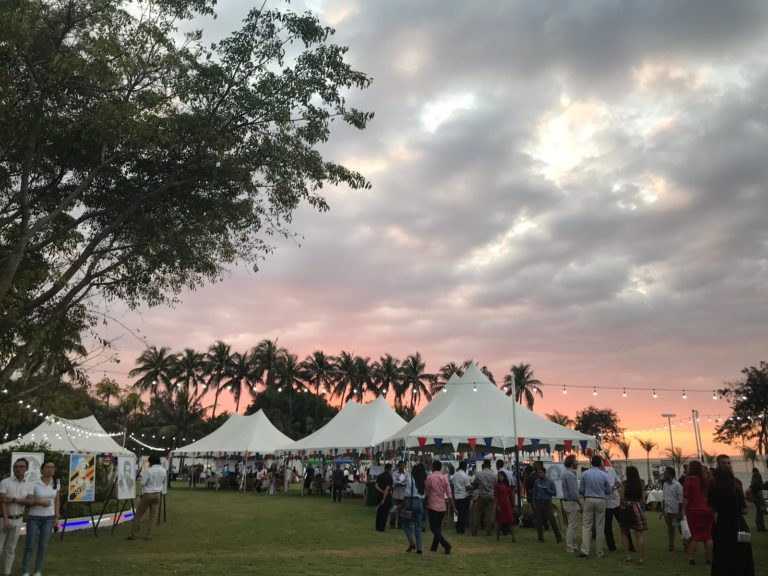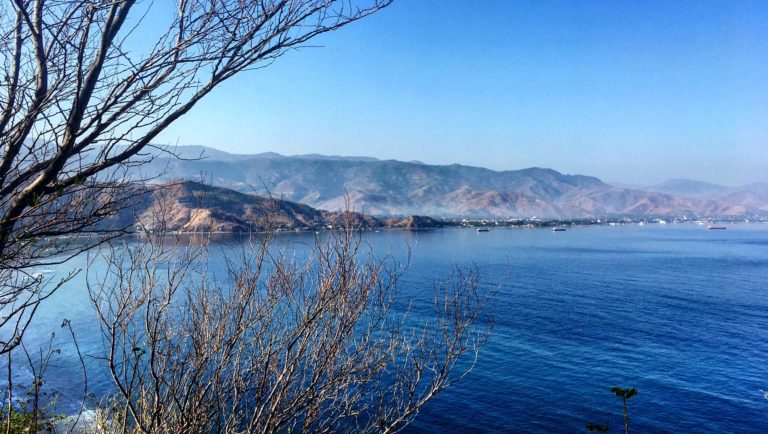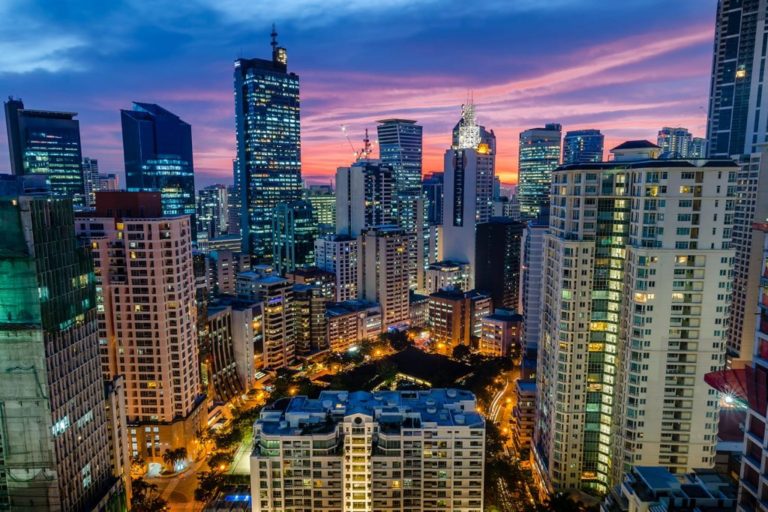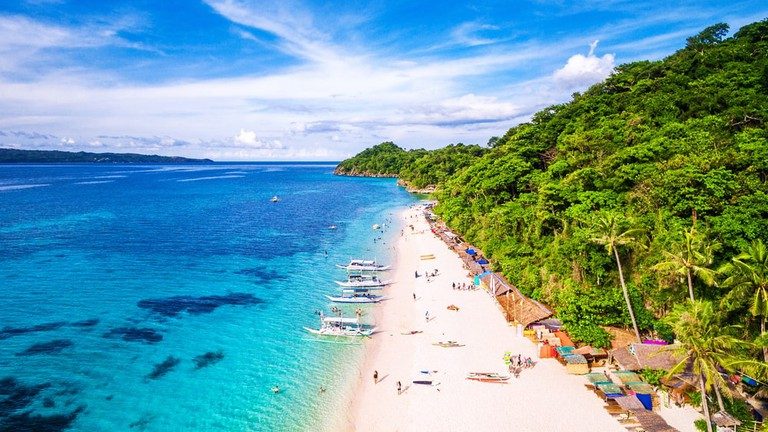The International Rule of Law and Security (IRLS) program has limited spaces in its Summer 2020 International Internship program still available! Applications are now being accepted for placements at the Office of the Ombudsperson for Human Rights and Justice (PDHJ) in Timor-Leste, and at the Ateneo Human Rights Center (AHRC) and the Commission on Human Rights (CHR), both in metro Manila, the Philippines.
All of the internships focus on rule of law, human rights, international development, good governance, or related issues. In these internships, students will use the knowledge and skills gained in law school to help the host non-governmental organizations or government offices combat challenges faced by lawyers and ordinary citizens in countries with developing legal systems. Funding options to cover travel, housing, and living expenses are available for all IRLS internships, thanks in part to a generous donation from the Jones Day Foundation and to the ASU Law Pay It Forward Program.
General internship details:
Application Link: To apply for the internships: https://forms.law.asu.edu/intlinternships
Application Timeline:
- Applications are due by midnight Arizona time on Friday, March 13.
- Interviews will be scheduled within one week of the application deadline.
Application Instructions:
- Rank your choices in the application link.
- You must rank at least one organization and you may rank as many as you would like. If you do not rank an organization, you will not be considered for that internship.
- Focus your statement of interest on your top-ranked choice. You may include information about your other ranked choices as well.
- Please direct any application questions to Jacob Kostrzewski, Program Coordinator, at Jacob.Kostrzewski@asu.edu
Funding: Scholarship funding is available to cover students’ cost to participate in these programs. The primary funding source is the ASU Law Pay It Forward program. There are a limited number of other scholarships available, and the number and amount of these awards will be determined during the application process. Generally each student will be eligible to receive from $3,000 to $5,000 from either or both of these funds, which will cover travel, housing, and living expenses during the internship.
ASU Law’s Pay It Forward program includes a pledge that award recipients intend to contribute back to the program within five years of graduation. More information about Pay It Forward is available here: https://law.asu.edu/experiences/asu-pay-it-forward. You are not required to accept funding from this program – if you do not wish to be considered for the Pay It Forward funding, indicate that on the application form.
Any scholarship funding may be affected by your individual financial aid circumstances. Please direct questions about funding and scholarships to Lauren Burkhart at Lauren.Burkhart@asu.edu.
Credit / Pro Bono: It is up to each student to decide whether to pursue course credit for summer internships. If you choose to do so, you will have to pay tuition and complete a few additional requirements. Students should also keep in mind the cap on total externship credits that may be applied towards graduation. If you do not receive credit for your IRLS summer internship, your work may be logged as pro bono hours.
Internship Timeframe: IRLS summer internship programs are a 10 week commitment. Internships in Timor-Leste will begin on May 25 and end on July 31, 2020. Internships in the Philippines will begin on June 1 and end on August 7, 2020. Students are welcome to spend additional time in the area before or after the externship.
Internship descriptions:
Timor-Leste


Located in Southeast Asia, Timor-Leste is one of the world’s newest democracies. It occupies the eastern half of the island of Timor, the other half of which is part of Indonesia. Timor-Leste boasts some of the most biodiverse reefs in the world, making it appealing for snorkeling and diving. There are also mountains to hike and small islands to explore. Tetum and Portuguese are the official languages of the country; most Timorese who are able to learn a second language, however, are more interested in English than in Portuguese. The IRLS program welcomed its first cohort of ASU Law interns to Timor-Leste last summer. Read about their experiences in ASU Now here, and see their blog posts in the IRLS Dispatch Blog.
The IRLS program is accepting additional applications for the following organization in Dili, the capital of Timor-Leste:
Provedoria dos Direitos Humanos e Justiça: PDHJ, or the Office of the Ombudsperson for Human Rights and Justice, is Timor-Leste’s national human rights institution. PDHJ was established by the Constitution of Timor-Leste to improve human rights and good governance in the country. The ombudsperson and her office work with local and international organizations to develop and enhance Timor-Leste’s human rights framework and to ensure that the country complies with international treaties it has signed. In 2019, the ASU Law intern at PDHJ researched and wrote a paper on the rights of persons with disabilities, and presented the paper at the South East Asia National Human Rights Institutional Forum, which was held in Timor-Leste that year. In 2020, the interns will work on similar research projects.
Philippines


Located in Southeast Asia, this country of more than 7,000 islands and 100 million people was colonized by Spain and then the United States before gaining independence in 1946. It is a beautiful, fascinating, and fast-growing country grappling with a range of development challenges.
The IRLS program is accepting additional applications for the following two organizations, located in metro Manila, the capital of the Philippines:
- Ateneo Human Rights Center: AHRCwas founded in 1986 and is affiliated with the law school at Ateneo de Manila University. Since its establishment, AHRC has had a structured internship program that exposes domestic and foreign law students to some of the challenges to fundamental rights in the Philippines as well as to a variety of types of human rights work. Educating future lawyers about human rights is one of AHRC’s main areas of work; other such areas include but are not limited to civil and political rights, gender issues, and building the human rights mechanism in the Association of Southeast Asian Nations (ASEAN). The internships begin with an orientation session, including a formation program during which interns see the work of human rights advocates in another part of the Philippines. ASU Law interns will do research and writing on timely human rights topics, and they will also be exposed to a range of AHRC’s work, such as paralegal training and litigation. There may be opportunities for ASU Law interns to present their reports for advocacy purposes.
- Commission on Human Rights: CHR is the national human rights institution (NHRI) of the Philippines. It is an independent government body established under the Philippine Constitution. Interns will work with Commissioner Roberto Cadiz, who leads CHR’s work on climate change and the environment, business and human rights, and international humanitarian law, among other topics. Commissioner Cadiz led CHR’s recent National Inquiry on Climate Change and is establishing an Institute on Climate Change and Human Rights in partnership with the University of the Philippines College of Law. ASU Law interns will work on projects related to the environment and climate change, including helping develop the strategy and educational curriculum for the new institute, as well as monitoring legal developments on climate change. Interns may also work on projects related to human rights issues relevant to the Global Alliance of NHRIs, such as the rights of overseas workers.